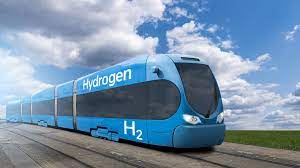The Romanian Ministry of Transport has approved the technical and economic specifications of a contract under which the government will pay 973m euros (excluding VAT) for 12 hydrogen-powered trains, each with 160 seats, Economica.net reported. The contract, which is being implemented through the Railway Reform Authority, will include, in addition to trains, their maintenance “for the long term”. Trains will be used to serve routes that are not yet electrified: between Central Station and Bucharest Airport (every half hour), Bucharest – Pitesti (every hour) and others.
The investment project is financed by external grants, through the National Program for Reconstruction and Sustainability PNRR, and from the state budget, through the budget of the Ministry of Transport and Infrastructure. Replacing diesel trains with trains using hydrogen fuel cells reduces transport pollution by the equivalent of more than 18,348 tonnes of CO2 per year and 306 tonnes of NOx / year (preliminary estimates currently cost € 600,000 per year), which helps achieve the goals set by European and national strategies to achieve a net zero pollution effect in 2050, explained Secretary of State Ionel Scriosteanu.
Recall that the largest Japanese railway company “JR East” introduced in February the train “Hibari”, powered by hydrogen. It was shown to journalists at an experimental base in the city of Kawasaki, which is located near Tokyo, Kyodo news agency reported. The engine generates electricity, which is stored in high-capacity batteries by chemically combining hydrogen from a tank with atmospheric oxygen. Only environmentally friendly water vapor is released into the atmosphere. Trains of this type can travel 140 kilometers on a single hydrogen charge. They will be used in rural areas where diesel locomotives are still used. Every year, JR East trains emit about 2.5 million tons of carbon dioxide. With the introduction of new technologies, including environmentally friendly hydrogen engines, this amount is expected to be halved by 2030. By 2050, JR East plans to reduce to zero







